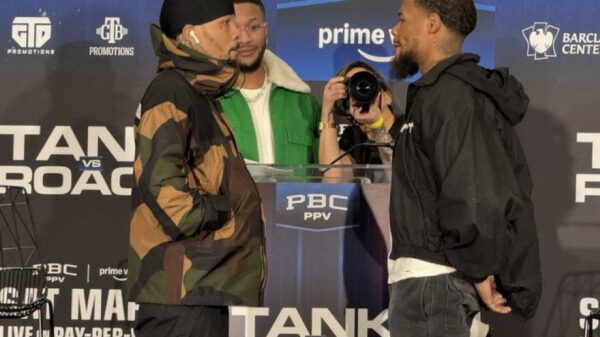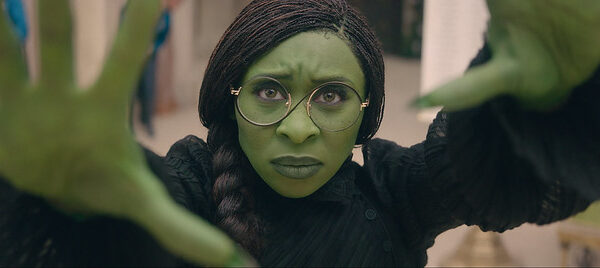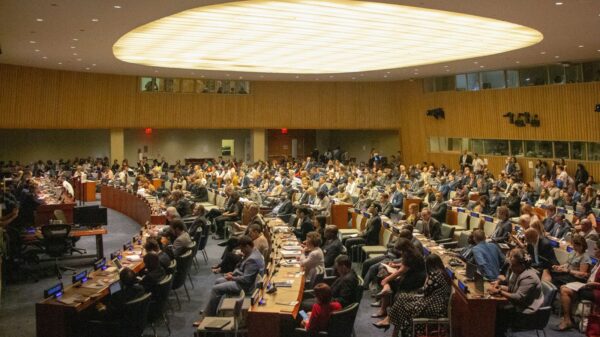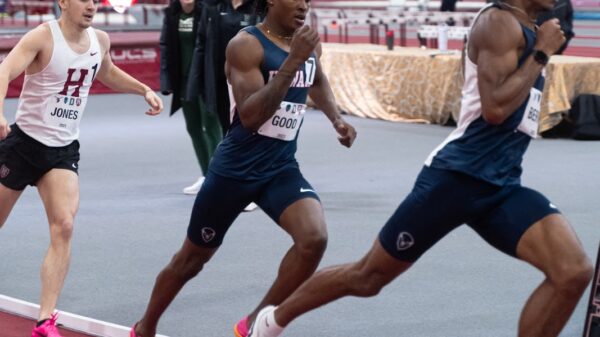Essenia Esatya Robinson (left), Thandiwe Abdullah (middle) and Aaron Booe (right). Photo by Zoé Coker
Black Jewish studens at Howard University say they are dissapointed, but not surpised in the wake of back to back antisemitic events.
At the forefront of these events stand: Brooklyn Nets basketball player Kyrie Irving and rapper/producer Kanye West. Irving posted a video of the film “Hebrews to Negroes: Wake up Black America” which has antisemitic messages, alleging that European Jewish people worshipped Satan in the early years of the ethnic religion and that they control mass media. West, on the other hand, outright proclaimed that he would “go death con three on Jewish people,” in a social media tirade that he alleges caused him to lose $2 billion dollars.
These events snowballed into a weeks-long conversation on social media surrounding antisemitism and the ways it takes shape within the Black community. Black Jewish people found themselves at an intersection that has always been dangerous for them. Two conflicting, yet rhyming pieces of their identity are brought to the forefront.
Aaron Booe (they/them) is a junior political science major at Howard. Booe’s connection to Judaism is linked to their mother, who is an Ethiopian Jew. They feel that the actions of Irving and West have been met with an “exaggerated” reaction.
“I think the reason a lot of people are surprised by this is because a lot of people don’t necessarily understand antisemitism as a kind of racism,” Booe said. “In the popular imagination, a lot of people associate Black people with people who are typically proponents of racial justice. So, whenever you see a Black person who’s making some sort of racially insensitive comment… there’s a tendency to exaggerate that.”
They made it clear that they were not denouncing the backlash received by the celebrities, nor did they deny the detriment of their comments. However, they emphasized that without the proper action following these instances, the moments only serve as deterrents to a larger issue.
“If we spend too much time worrying about these attitudes of celebrities, we can allow ourselves to become easily confused, politically speaking,” Booe continued. “It really does sort of take attention away from the people in power, who are really responsible for perpetuating these [antisemitic] attitudes.”
Growing up, Booe’s family was one that was more secular, meaning their relationship with the ethnic religion was more lenient religiously. Practices and holidays like Hanukkah and Shabbat were often celebrated, but Booe doesn’t recall Synagogue being a non-negotiable activity. Booe also was a part of different Jewish organizations and had very favorable experiences within the Jewish community.
Juxtaposing this experience is the relationship that junior sociology major Essenia Esatya Robinson (they/them) and junior African-American studies major Thandiwe Abdullah (they/them) have with Judaism as a piece of their identities.
“I knew that I was Jewish –– it was never hidden from me or anything, but I just never felt comfortable claiming it, because at certain points I felt like they didn’t claim me. They only claimed me when they wanted to seem diverse,” Abdullah said, in reference to their white, Jewish family members.
Robinson’s grandmother narrowly escaped a concentration camp during the Holocaust. She migrated to New York after fleeing Germany, and eventually landed in California. One of her sons is Robinson’s father. Robinson’s mother is a non-Jewish, Black woman and according to blood quantum, their connection to Judaism is less legitimate because their mother is not Jewish.
Blood quantum, according to Robinson and Abdullah, suggests that the more “pure” Jewish blood one has, the more legitimate they are. In addition, the purity of the blood can be diluted if someone doesn’t have a Jewish mother, like Robinson. Abdullah’s mother is who gives Abdullah their Jewish heritage. Since Abdullah has two Black parents, they also struggle with feeling invalidated as a Jewish person. Blood quantum is an old, outdated practice that is often scrutinized for being discriminatory to Jewish people of color.
The friends that Robinson and Abdullah met at Howard gave each other the opportunity to explore their relationship with Judaism. Both of them understand the nuance that comes with being Black and Jewish and give each other the space they didn’t previously have to explore this.
“Our journeys with Judaism are super similar. I feel like it’s helped me understand what it was to me and to be able to claim it,” Robinson said.
They both expressed that outside of their communities at Howard, they don’t feel validated in their Jewish identities. Both feel that at Howard they have a unique opportunity to be, as Abdullah put it, “three-dimensional beings,” to be seen as more than just a Black person.
“Outside of Howard, I don’t feel like I’m Jewish,” Robinson said.
Questions about if they qualify for the birthright, a sacred trip to Israel for Jewish people, or who their mothers are, are often thrown at them, they both shared. Leaving them constantly feeling like they have to prove their Judaism. Questions, they believe, wouldn’t be asked if they were white.
Despite these experiences, they both do not take lightly to antisemitism. The pair agreed that Irving and West deserved the consequences they received. They shared their frustrations with people in the Black community who tried to justify the celebrities’ actions. Highlighting that it doesn’t help anyone when people immediately jump to share biased, ill-based opinions. Nevertheless, they believe “culturally sensitive” education can help change these negative feelings.
Still, they feel that coverage of the issues by white people has begun to feel redundant. Abdullah mentioned their frustration with seeing countless headlines that suggested there was a malicious antisemitic virus running through the Black community.
“I’m really disappointed in Kanye and Kyrie, but let’s not act like they’re a reflection of the entire Black community,” Abdullah said.
“Or that they’re unique because they are Black. There are so many other non-Black celebrities who say the same stuff,” Robinson echoed. “There’s also so many non-celebrities who say the same stuff, but also have a big following.”
All three students come from different backgrounds and represent varying identities within the Jewish community. Being at Howard has given them all an opportunity to cultivate positive attitudes toward their Jewish heritage. They all believe that education is vital to diffusing the spread of antisemitism and are all involved in organizations like the Claudia Jones club that promote political education and community organizing.
Robinson and Abdullah plan to create a Jewish club geared towards building more relationships with other members of the Jewish community and creating a safe space for the exploration of Judaism.
Copy edited by Chanice McClover-Lee













